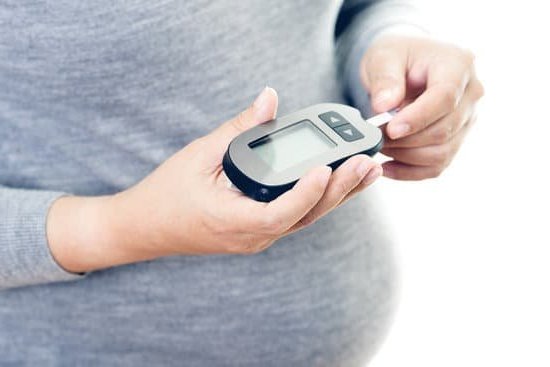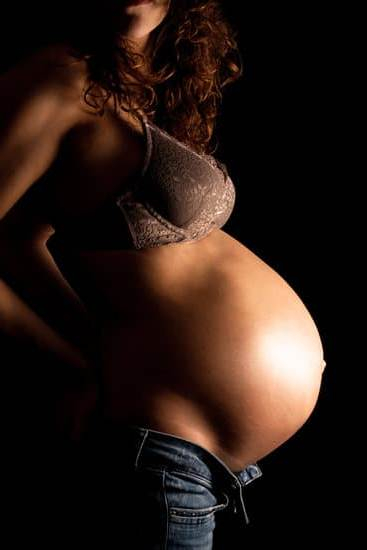Why is nutrition during pregnancy so important? The impact of nutrition on both the mother and baby cannot be overstated. In this blog post, we will cover essential nutrients for a healthy pregnancy, foods to avoid, a healthy eating plan, staying hydrated, dealing with cravings, the role of supplements, and planning for a healthy postpartum diet.
During pregnancy, it’s crucial to ensure that both the mother and baby are getting the necessary nutrients for optimal health. Essential nutrients such as folic acid, iron, calcium play a significant role in supporting the well-being of both the mother and baby. This blog post will delve into why these nutrients are important and provide information on the best food sources for obtaining them.
Pregnancy brings about various dietary considerations, and it can be overwhelming for expectant mothers to navigate through all the dos and don’ts when it comes to nutrition. However, this article aims to provide valuable insight into creating a well-rounded and balanced approach to nutrition during pregnancy. From understanding which foods to avoid to managing pregnancy cravings in a healthy way, we aim to offer comprehensive guidance for expectant mothers seeking optimal nutrition for a healthy pregnancy journey.
Essential Nutrients for a Healthy Pregnancy
During pregnancy, it is crucial for women to pay close attention to their nutrition in order to support the health and development of both themselves and their baby. The right balance of essential nutrients plays a key role in ensuring a healthy pregnancy and reducing the risk of complications. In this section, we will delve into the importance of specific nutrients for pregnant women and their babies, as well as explore the best food sources for obtaining these nutrients.
Importance of Folic Acid
One of the most important nutrients for pregnant women is folic acid, also known as folate. This B vitamin is crucial for preventing birth defects of the baby’s brain and spinal cord. Adequate intake of folic acid can significantly reduce the risk of neural tube defects. Foods rich in folic acid include leafy green vegetables, citrus fruits, beans, and fortified cereals. In some cases, doctors may recommend taking a folic acid supplement to ensure sufficient intake.
Benefits of Iron
Iron is another essential nutrient during pregnancy, as it supports the increased production of blood to supply oxygen to the baby. Pregnant women are at higher risk for developing iron deficiency anemia due to the body’s increased demand for iron. Red meat, poultry, fish, lentils, and spinach are excellent food sources of iron that can help prevent anemia during pregnancy.
Best Food Sources for Calcium
Calcium is vital for bone health and development in both the mother and baby during pregnancy. The developing fetus will draw calcium from the mother’s bones if her diet does not provide enough calcium, which can lead to bone density loss over time.
Dairy products such as milk, yogurt, and cheese are high in calcium, as well as fortified plant-based milk alternatives. Additionally, green leafy vegetables like kale and broccoli can contribute to a pregnant woman’s calcium needs.
Incorporating these essential nutrients into a well-rounded diet is fundamental throughout all stages of pregnancy in order to promote overall health and development for both mother and child.
Foods to Avoid During Pregnancy
During pregnancy, it’s crucial to be mindful of what you consume to ensure the health and well-being of both the mother and the baby. As part of a comprehensive pregnancy nutrition checklist, it’s important to be aware of the foods to avoid during this critical time. Certain foods can pose significant risks to the mother and baby, potentially causing complications or harm. Therefore, being knowledgeable about these potential risks is essential for a healthy pregnancy.
One key food category to avoid during pregnancy is unpasteurized dairy products, such as certain soft cheeses and milk. These can harbor harmful bacteria such as Listeria, which can lead to serious complications including miscarriage, stillbirth, or premature delivery. Similarly, raw or undercooked meat and seafood should be avoided due to the risk of contamination with bacteria and parasites that can cause foodborne illnesses.
Additionally, pregnant women should steer clear of high-mercury fish such as shark, swordfish, king mackerel, and tilefish. High levels of mercury in these fish can be harmful to the developing nervous system of the baby. Caffeine intake should also be limited during pregnancy as excessive consumption has been associated with an increased risk of miscarriage. It’s recommended to keep daily caffeine intake below 200 milligrams during pregnancy.
| Foods Category | Risks During Pregnancy |
|---|---|
| Unpasteurized Dairy Products | Potential harm from bacteria like Listeria that can lead to complications including miscarriage or premature delivery |
| Raw or Undercooked Meat and Seafood | Risk of exposure to harmful bacteria and parasites that can cause foodborne illnesses |
| High-Mercury Fish | Potential harm to the developing nervous system of the baby due to elevated levels of mercury |
| Caffeine Intake | Increased risk of miscarriage associated with excessive consumption; recommended daily limit below 200 milligrams during pregnancy |
Healthy Eating Plan for Pregnancy
A healthy eating plan is essential for a healthy pregnancy. It ensures that both the mother and the baby receive the nutrients they need to support growth and development. Following a pregnancy nutrition checklist can help pregnant women make sure that they are getting all the necessary nutrients during this crucial time.
When creating a healthy eating plan for pregnancy, it is important to focus on nutrient-dense foods such as fruits, vegetables, whole grains, lean proteins, and healthy fats. These foods provide essential vitamins and minerals that are vital for the health of both the mother and the baby. It is also important to include foods that are high in folic acid, iron, calcium, and other key nutrients that are particularly important during pregnancy.
In addition to focusing on nutrient-dense foods, pregnant women should also pay attention to portion control and strive for balanced meals. Eating regular meals and snacks throughout the day can help maintain steady energy levels and prevent dips in blood sugar. It is also important to stay hydrated by drinking plenty of water throughout the day.
| Key Nutrient | Best Food Sources |
|---|---|
| Folic Acid | Leafy green vegetables, fortified cereals, beans |
| Iron | Lean red meat, poultry, fish, lentils |
| Calcium | Dairy products, fortified plant-based milks |
Staying Hydrated During Pregnancy
During pregnancy, staying hydrated is crucial for both the mother and the developing baby. Proper hydration helps to maintain amniotic fluid levels, supports the increased blood volume in the mother’s body, and aids in forming essential nutrients for the baby’s growth. Dehydration can lead to complications such as neural tube defects and low amniotic fluid levels. To ensure a healthy pregnancy, it is essential to follow a pregnancy nutrition checklist that includes staying adequately hydrated.
The Importance of Staying Hydrated
Hydration for Amniotic Fluid Levels
Amniotic fluid plays a vital role in protecting the baby and allowing room for movement and growth. Proper hydration supports the production and maintenance of amniotic fluid levels.
Supporting Increased Blood Volume
During pregnancy, a woman’s blood volume increases significantly to support the growing fetus. Adequate hydration helps to prevent dehydration and reduce the risk of complications such as preterm labor or neural tube defects.
Aiding Nutrient Absorption
Staying hydrated supports the absorption of essential nutrients needed for both the mother and baby’s health.
Recommended Daily Intake of Water
Pregnant women should aim to drink at least 8-10 cups (64-80 ounces) of water each day. In addition to water, fluids from fruits, vegetables, broths, and herbal teas can also contribute to overall hydration levels. It is important for pregnant women to monitor their urine color; pale yellow urine indicates proper hydration while dark yellow urine may signal dehydration.
Tips for Increasing Fluid Intake
Carry a Water Bottle
Having a water bottle on hand serves as a reminder to drink throughout the day.
Flavor Infusions
Adding natural flavors like lemon or cucumber can make water more enjoyable.
Eat Hydrating Foods
Consume foods with high water content such as watermelon, cucumbers, and oranges.
By following these recommendations for staying hydrated during pregnancy, women can support their overall health and well-being during this important time. Incorporating these tips into their pregnancy nutrition checklist will help mothers stay well-nourished while carrying their babies to term.
Dealing With Pregnancy Cravings
Pregnancy cravings are a common phenomenon experienced by many expectant mothers. These cravings can range from the desire for specific foods such as pickles and ice cream to the urge to indulge in less healthy options like sugary snacks and fast food.
While the exact cause of pregnancy cravings is not fully understood, hormonal changes, nutrient deficiencies, and emotional factors are believed to play a role in their development. It’s important for pregnant women to recognize that experiencing cravings is normal and that they can be managed in a healthy way.
Tips for Managing and Satisfying Cravings in a Healthy Way
While it’s okay to indulge in treats occasionally, it’s essential for pregnant women to find ways to manage their cravings and satisfy them in a healthy manner. One way to do this is by practicing mindful eating, which involves paying attention to hunger cues and choosing nourishing options when a craving strikes.
Additionally, stocking up on healthier alternatives can help satisfy cravings without compromising overall nutrition. For example, keeping fresh fruit, nuts, or yogurt on hand can provide nutritious alternatives to sugary or high-fat snacks.
Healthier Alternatives for Common Pregnancy Cravings
It’s helpful for pregnant women to be aware of healthier alternatives for common pregnancy cravings. For those with a sweet tooth, swapping out candy and pastries for naturally sweet fruits like berries or slices of apple with nut butter can offer a more nutritious option.
Similarly, if salty foods are desired, reaching for air-popped popcorn or whole-grain crackers with hummus can provide satisfaction without excess sodium or unhealthy fats. By making thoughtful choices when faced with pregnancy cravings, expectant mothers can continue to prioritize their pregnancy nutrition checklist while enjoying occasional indulgences.
The Role of Supplements in Pregnancy
During pregnancy, it can be challenging to obtain all the necessary nutrients solely through diet. This is where supplements come in, providing additional support for both the mother and baby. Here are some essential supplements that pregnant women should consider incorporating into their daily routine:
Prenatal Vitamins
Prenatal vitamins are specifically formulated to meet the increased nutritional needs of pregnant women. They typically contain higher levels of folic acid, iron, and other key nutrients vital for the healthy development of the baby. It’s important to start taking prenatal vitamins as soon as you find out you’re pregnant, or even when you’re trying to conceive.
Omega-3 Fatty Acids
Omega-3 fatty acids, particularly DHA (docosahexaenoic acid), play a crucial role in the development of the baby’s brain and eyes. While these essential fatty acids can be found in certain fish, many pregnant women opt for fish oil supplements to ensure they are getting an adequate amount without consuming high levels of mercury.
Vitamin D
Vitamin D is essential for calcium absorption and bone health, both for the mother and the developing baby. Since it may be challenging to get enough vitamin D from food alone, especially during winter months or for those with limited sun exposure, a vitamin D supplement may be recommended by healthcare providers.
Planning for a Healthy Postpartum Diet
In conclusion, pregnancy nutrition is a crucial aspect of prenatal care that can have a significant impact on the health and well-being of both the mother and baby. The essential nutrients discussed in this blog post, such as folic acid, iron, and calcium, play a vital role in supporting the growth and development of the baby while also ensuring the mother’s overall health during pregnancy.
By following the pregnancy nutrition checklist and incorporating these key nutrients into their diet, expectant mothers can help reduce the risk of birth defects and complications while promoting their own well-being.
Additionally, avoiding harmful foods during pregnancy and staying hydrated are important factors in maintaining a healthy pregnancy. By following a healthy eating plan that includes balanced meals, portion control, and staying hydrated with adequate water intake, mothers-to-be can support their bodies’ changing needs throughout pregnancy. Managing pregnancy cravings in a healthy way also contributes to overall wellness during this time.
Looking ahead to postpartum recovery, planning for a healthy postpartum diet is essential for supporting physical healing and replenishing key nutrients after giving birth. It’s important for new mothers to focus on nutrient-dense foods that support recovery and provide energy as they transition into this new phase of life. By following these guidelines for nutrition during pregnancy and beyond, expectant mothers can prioritize their health and set the stage for a healthy start to motherhood.
Frequently Asked Questions
What Are the Nutritional Requirements for a Pregnant Woman?
The nutritional requirements for a pregnant woman are essential for the growth and development of the fetus, as well as for the overall health of the mother. Key nutrients such as folate, iron, calcium, and protein are crucial during pregnancy to support the increased needs of both the woman and her growing baby.
What Should a Pregnant Woman’s Diet Consist Of?
A pregnant woman’s diet should consist of a variety of nutrient-dense foods such as fruits, vegetables, lean proteins, whole grains, and healthy fats. It is important for pregnant women to stay hydrated by drinking plenty of water and to avoid excessive consumption of caffeine, processed foods, and high-sugar snacks.
What Are the 8 Key Nutrients for a Healthy Pregnancy?
The 8 key nutrients for a healthy pregnancy include: folate/folic acid, iron, calcium, vitamin D, DHA (omega-3 fatty acids), protein, fiber, and water. These nutrients play vital roles in supporting the development of the baby’s organs and tissues while also ensuring the mother’s health throughout pregnancy.

Welcome to my fertility blog. This is a space where I will be sharing my experiences as I navigate through the world of fertility treatments, as well as provide information and resources about fertility and pregnancy.





